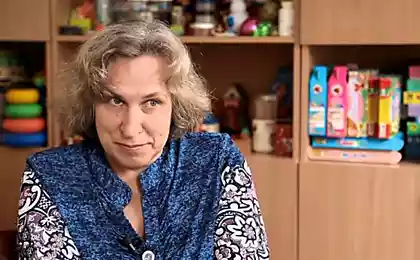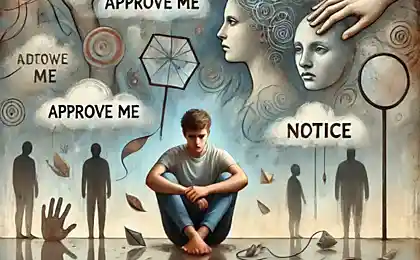123
Where to find a child-to-adult translator

In every home where children’s laughter sounds, sooner or later there is a need for a special translator – someone who will help decipher the mysterious messages of little people.
Anatomy of children's language: why adults do not understand
Children’s language is not just a simplified version of adult speech. It is a completely unique system of communication based on emotions, associations and logic that seems absurd to adults. When a four-year-old says, “I’m sad in my tummy,” he’s not talking about digestive problems — he’s describing anxiety in language that he can understand.
73%
Parents admit they don’t always understand what their child is trying to say.
Neuropsychologists identify several key features of children’s thinking that affect the way they express thoughts. Children think concretely, not abstractly, so they describe complex emotions through physical sensations. Fear becomes the “monster in the closet” and joy becomes the “butterflies in the chest.”
The main barriers to understanding:
• Syncretic thinking The child connects unrelated to adult phenomena
• Emotional coloration All statements are imbued with feelings
• Limited vocabulary Complex concepts are expressed in simple words
• Magical thinking The boundaries between the real and the imaginary are blurred
Professional translators: who they are and where to find them

The first category of interpreters are specialists who professionally study children’s psyche and communication. Child psychologists not only understand the peculiarities of children’s thinking, but also possess techniques that help to “decipher” children’s messages.
Where to find a qualified child psychologist: State polyclinics Free consultations, but long lines
• Private health centres Quick access, individual approach
• Psychological centres Specialized services in child psychology
• Online platforms A convenient format for initial consultations
• Pediatrician recommendations Doctors know proven professionals
Speech therapists also play the role of “interpreters”, especially when it comes to children with special speech development. They not only correct pronunciation, but also help the child find ways to express complex thoughts in accessible ways.
As the child psychologist Maria Montessori said, “A child cannot be free unless he is independent.” Therefore, the first active manifestations of the individual freedom of the child should be directed so that through this activity he can achieve independence. ?
Teachers as bridges of understanding
Kindergarten teachers and primary school teachers are experts in children’s communication. They interact daily with dozens of children of different ages and temperaments, giving them a unique experience in deciphering children’s messages.
Do not hesitate to contact your child’s caregiver for help in understanding their behavior at home. Educators often notice nuances that escape parental attention.
Especially valuable are teachers of additional education – leaders of circles and sections. They see the child in an informal environment where he is as open and natural as possible. A child coach can talk about how a child reacts to failure, and a music teacher can talk about how they express emotions through creativity.
Family interpreters: grandparents and older children
There are often “interpreters” within the family. Grandparents with generations of experience have an intuitive understanding of child psychology. They remember how the parents of today’s children behaved in childhood, and can draw parallels.

Advantages of family interpreters:
• Continuous availability - They're always there.
• Emotional closeness The child trusts them.
• Knowledge of the family context Understand the characteristics of the family
• Patience Are willing to spend time understanding
Older siblings can also act as interpreters. They were children and remember the logic of children’s thinking. Moreover, they speak the same language as the younger ones – the language of games, cartoons and children’s interests.
Technology Assistants in Understanding Children
Modern technology offers new ways to understand children. Mobile apps for parents help to track a child’s mood, activity and even analyze speech patterns. Some applications use artificial intelligence to analyze children's drawings and identify hidden emotions.
42%
Modern parents use digital tools to better understand their children
Child psychologists’ video blogs, parenting podcasts, and online child psychology courses have become accessible tools for parents looking to better understand their children. These resources offer specific strategies and examples for decoding children’s behaviors.
How to become a translator for your child
The most reliable way to find a translator from child to adult is to become one yourself. It requires patience, observation, and a willingness to rethink your adult stereotypes about how a child should be expressed.
Step-by-step plan for the development of “translation” skills: Active hearing Do not rush to correct or explain.
• Ask open-ended questions - "Tell me more about it."
• Reflect emotions - "I can see you're upset."
• Use children's language Speak at an understandable child level
• Watch for nonverbal signals - gestures, facial expressions, posture
• Create a safe atmosphere The child should feel understood.
Research shows that children who are understood and accepted develop healthier self-esteem and better communication skills in adulthood.
When a professional translator is urgently needed
There are situations when independent efforts are not enough, and the help of a professional is necessary. If a child suddenly withdraws, shows aggression or his behavior changes dramatically, this can be a signal of serious problems that require the intervention of a specialist.
Alert signals: Sharp behavior change for no apparent reason
• Refusal to communicate with close people
• Developmental regression (return to earlier behavior)
• Repeated nightmares or fears
• Aggressive behavior or self-harm
In such cases, the child psychologist or psychiatrist becomes not just translators, but “decipherers” of complex emotional states. They help not only to understand what is happening to the child, but also to develop a strategy of help.
Conclusion
Searching for a translator from a child to an adult is not so much a search for a specific person as the development of a special quality of attention and understanding. The best interpreter is the one who is ready to stand in the place of the child, to see the world through his eyes and to accept his way of expressing thoughts and feelings.
Remember, every child is unique, and what works for one may not work for the other. Patience, love and a sincere desire to understand are the basic tools of any child translator. Sometimes it is enough to understand a child just to sit next to him and listen carefully to what he has to say.
Glossary
Syncretic thinking
A peculiarity of children’s thinking, in which the child connects phenomena that seem unrelated to each other to an adult.
Magical thinking
A type of thinking characteristic of preschool children, in which the child believes in the ability to influence the world around him with the power of thought or desire.
Active hearing
A communication technique in which the listener concentrates fully on the speaker shows empathy and gives feedback.
Empathy.
The ability to understand and share the emotional state of another person, to “feel” in his experiences.
Regression
A return to an earlier level of development or behavior typical of a younger age.
Nonverbal communication
Transmission of information without the use of words: through gestures, facial expressions, posture, intonation and other ways.
What your mind sees first: The psychology of perception
12 Things You Should Do If You Send A Message That Is Uncomfortable























